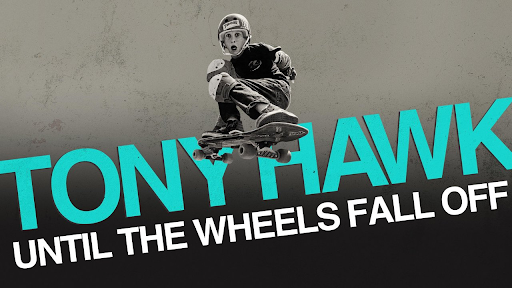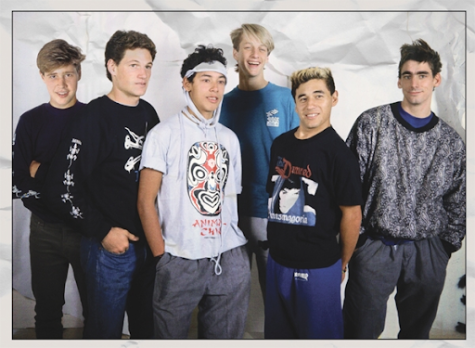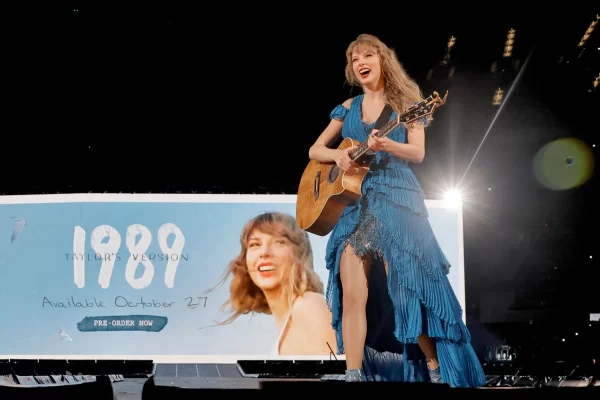“Until The Wheels Fall Off” Review: Nothing Stops Hawk

https://www.tvinsider.com/show/tony-hawk-until-the-wheels-fall-off/
The HBO documentary, directed by Sam Jones, gives an inside look at the skateboarding legend’s story.
The new Tony Hawk documentary Until The Wheels Fall Off begins with shots of the subject (you guessed it) skateboarding, but these are not clips of him in his heyday, though there will be many throughout the film. Instead, it opens with Hawk today, at 53, skating in the bowl in his own home, trying and failing repeatedly to land a 900, an aerial 2-and-a-half revolution twist and one of the most difficult tricks a skater can learn. That trick will return later, but for now, we watch Hawk fail over and over until he lies down and screams in frustration.
After the opening, the film launches into Hawk’s biography, detailing his early life as a stubborn, defiant child who found a channel for all his focus and determination in skating. Hawk’s dogged dedication is a theme throughout the documentary from that very first opening. As a skinny 13-year-old without the strength to do the maneuvers other skaters could, he devised methods and tricks to get around his disadvantage, even when others called it cheating. A particularly interesting interview with Hawk’s former opponent, Duane Peters, sees him explain the distaste he had for Hawk as a teenager, but by the end of the film, he’s expressing his amazement at the skater’s creativity.
The film takes us through Hawk’s rise to fame, with commentary from other legendary skaters and former members of the skate group Bones Brigade, such as Rodney Mullen, Mike McGill, and Christian Hosoi. It’s an exhilarating ride through the skateboarding craze of the mid-80s and early 90s, filled with jaw-dropping clips of competitions and demos, but we also learn about the intense difficulties Hawk faced with his marriage, family, and self-esteem, the break he took from competing when the pressure got too overwhelming, and his several years of poverty in the late 80s when skateboarding took a massive downturn in popularity.
It’s truly eye-opening to see the obstacles Hawk has faced throughout his career. At one point, he says that early in his career he told himself “I don’t belong and this is a mistake and I don’t fit into the skateboard world.” However, the thread running through his whole career, every up and down, is that determination. In the 1999 X Games, the best trick competition stopped dead to watch him try the 900 over and over, landing it on the 11th attempt.
Another highlight of the film is the running commentary from Hawk’s old friends. Rodney Mullen talks about skating in much the same way a monk might talk about meditation, saying that “[skateboarding] becomes an expression of who you are, your identity” and that “we skate with our hearts.” Each person interviewed has a different perspective on what skating means to them, but the consensus is that Hawk pushes himself harder than any of them, even at the risk of serious injury.
Though we see Hawk at the end of the documentary living a happy, stable life with his wife Catherine and kids, it’s clear that his career is not over. As we return to his modern-day attempts at a 900, his friends chime in that they all know what they’ve sacrificed to skate past their prime: shoulder and back pain, stiff necks, and countless concussions. But none of them regret a thing, and finally seeing Hawk land a 900 again at age 53 proves the truth in the documentary’s title; skating is the very air Hawk breathes, and there is no stopping him anytime soon.

(https://www.slugmag.com/community/skate/bridges-bones-and-brigades-the-history-of-skateboarding/)
Hannah Schwartz is a senior at Pittsburgh Allderdice High School who has enjoyed writing for as long as she can remember. She is also a member of Allderdice...






